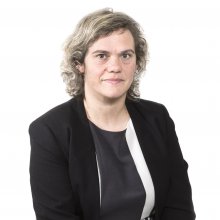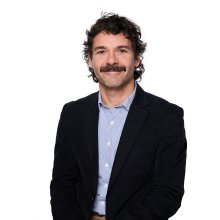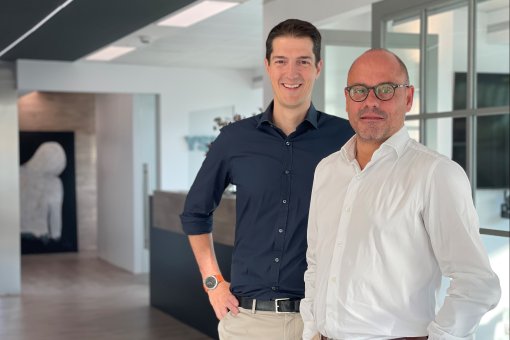Images
Participants



Contact

Meritxell Teixidó and Núria Bayó, researchers at IRB Barcelona, have completed the first stage of the LLAVOR (seed) Programme aimed to support innovation
The researchers recommend the experience “for 99% of scientists”
Meritxell Teixidó, associate researcher with the Peptides and Proteins Lab at the Institute for Research in Biomedicine (IRB Barcelona), and Núria Bayó, postdoctoral fellow in the same group, have just completed the first part of the LLAVOR (seed) Programme, an initiative that supports innovative projects that have market potential. The programme was launched in May by the Agencia de Gestión de Ayudas Universitarias y de Investigación (AGAUR), an organisation run by the Government of Catalonia, and it is supported by ERDF (European Regional Development Fund) funds.
Headed by Ernest Giralt, the IRB Barcelona lab was granted funding and training support for the development of a project conducted in collaboration with the Hospital Clínic de Barcelona and the Hospital Virgen del Rocío de Sevilla that seeks to get an antibiotic peptide candidate against multi-resistant bacteria into the market.
The first training period, given by the Lester Center for Entrepreneurship at the University of Berkeley, was based on “learning by doing”. The 8-week course ended with a 3-day stay at Berkeley, where the first stage was concluded. Teixidó and Bayó recommend the experience “for 99% of scientists” regardless of whether they want to develop an innovation project as “the programme goes much further than the project and seeks to generate new research dynamics”.
Learning new dynamics
Teixidó and Bayó highlight the opportunity to become familiar with the other projects that received the award. In the first call, the results of which were announced on 4 May, 24 projects out of 90 applications received funding from the Llavor Programme. Half the projects were in science and the other half in architecture and engineering and they were from 15 research centres throughout Catalonia. Teixidó describes them as “highly innovative and run by very dynamic people, with who we will certainly build future synergies”.
The Llavor Programme aims to promote the translation of results from the lab and to encourage scientists to step out of their comfort zone and to appreciate the market potential of their product. Through personal interviews, the team has set up a wide network of contacts with other groups and with the diverse agents related with their project, such as hospitals and businesses operating in the sector. “This approach pushes you to understand the dynamics of the whole system and its needs,” comments Bayó.
The programme also includes a mentor from the business sector. In the case of IRB Barcelona, this role is undertaken by Jimena Fernández, I+D manager at BCN Peptides. Tiago Botelho, who works in IRB Barcelona’s Innovation Office, has also collaborated in the project by providing support regarding technical, paperwork, and business jargon issues.
The second part of the training, to be held from September to December, will be given by the company Lead to Change.
In the coming weeks, the members of the team, together with the groups from the Hospital Clínic and the Hospital Virgen del Rocío, will set lay out the steps to follow in order to get an antibiotic candidate to the market and to make the best use of the funding awarded.
About IRB Barcelona
The Institute for Research in Biomedicine (IRB Barcelona) pursues a society free of disease. To this end, it conducts multidisciplinary research of excellence to cure cancer and other diseases linked to ageing. It establishes technology transfer agreements with the pharmaceutical industry and major hospitals to bring research results closer to society, and organises a range of science outreach activities to engage the public in an open dialogue. IRB Barcelona is an international centre that hosts 400 researchers and more than 30 nationalities. Recognised as a Severo Ochoa Centre of Excellence since 2011, IRB Barcelona is a CERCA centre and member of the Barcelona Institute of Science and Technology (BIST).





